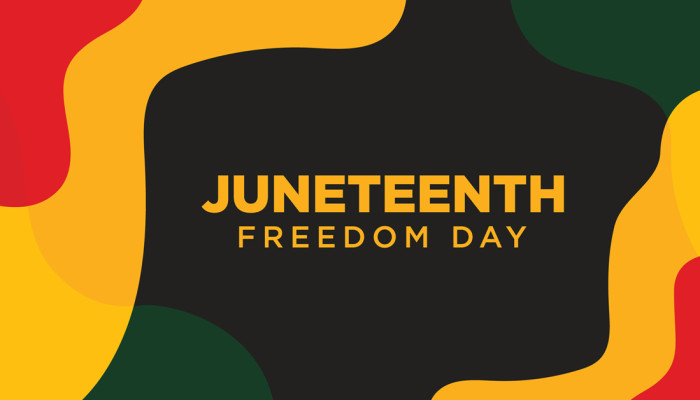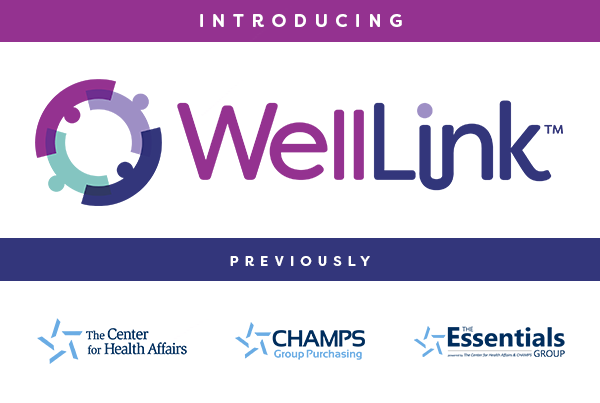Juneteenth’s Promise: Closing the Health Gap for All

Celebrated for the first time in 1866, Juneteenth marks the delayed enforcement of the Emancipation Proclamation in Texas on June 19, 1865. Major General Gordon Granger’s announcement in Galveston formally ended slavery for thousands who had remained in bondage long after freedom was declared.
Juneteenth is both a celebration of freedom achieved and a reminder of the promise embedded in that historic proclamation — a promise that remains unfulfilled for many. At WellLink, we believe promise includes the ability to live a full, healthy life. Yet today, too many people across the U.S. still lack access to quality, affordable healthcare and live in environments that do not support their health and well-being.
Health Gaps Still Exist
Long after slavery ended, there are still deep differences in health between African Americans and others. These differences are not just about individual choices. Health and economic disparities are linked to long-standing policies and issues in neighborhoods, healthcare access, and support systems.
Generations after emancipation, stark disparities continue to define the health experiences of African Americans. The data is unambiguous:
- African American women are nearly three times more likely than white women to die from pregnancy-related causes.
- African American neighborhoods that experienced historical redlining experience higher rates of chronic illnesses like asthma, diabetes, and high blood pressure.
- Poor housing conditions, environmental hazards, and limited access to healthcare for urban and rural populations make these problems worse.
These issues reflect the need to improve systems. Simply addressing today’s problems does not change the conditions that will shape tomorrow.
WellLink’s Role: Connecting People, Policy and Purpose
At WellLink, we serve as a connector and a convener, bringing people and ideas together to solve problems. We are committed to improving health by encouraging collaboration, innovation, and advocacy.
Through our Social Determinants of Health (SDoH) Innovation Hub, powered by the Amazon Web Services, we are focused on addressing root causes like food insecurity, housing instability, education gaps, and lack of transportation — conditions that have a direct impact on health.
Local Work That Makes a Difference
One example of this work is WellLink’s focus on preventing firearm suicide, a serious and growing concern in Cleveland and across the nation. By analyzing data and listening to community members, we found that housing instability, unemployment, and lack of transportation are key risk factors for firearm suicide, particularly among African American men under the age of 35 and even as young as 10 years of age.
In response, we are working to bring intergenerational housing with wraparound services to Cleveland. This model brings people of different ages together to live in shared and affordable housing. Residents will have access to support services such as food, healthcare, education, and digital access. This intentional community will be built around a common green space that invites connection and well-being. This kind of setting can reduce isolation, build community, and give people a stronger sense of purpose.
Supporting Policies That Improve Health For All
In addition to working with communities, WellLink is committed to advocating for systemic policy change. We support policies that can improve health outcomes, especially for groups that have been underserved. These include:
- Preserving Medicaid coverage for low-income individuals and families.
- Improving maternal health.
- Expanding access to behavioral healthcare in rural and urban settings.
- Promoting clean air, areas with greenery, and safe environments in all neighborhoods.
What Juneteenth Means Today
Juneteenth teaches us that freedom that is delayed is not freedom; and, most importantly, this observance reminds us that real freedom requires more than words. It requires action that leads to safer birth outcomes for mothers and babies; access to clean air and safe housing; access to behavioral healthcare without fear or stigma; and ultimately the ability to live a healthy life regardless of zip code or income.
Moving Forward Together
Improving population health is only achieved through partnerships among community members and stakeholders who commit to working for structural changes. At WellLink, we are proud to work with healthcare providers, faith-based leaders, for-profit organizations, public agencies, nonprofits, and community leaders who share this vision.
This Juneteenth, we honor those who came before us by continuing the work they began — the work of community wellness and meaningful opportunity. This is the legacy of Juneteenth: build a future where all people can live full, healthy, and meaningful lives.

